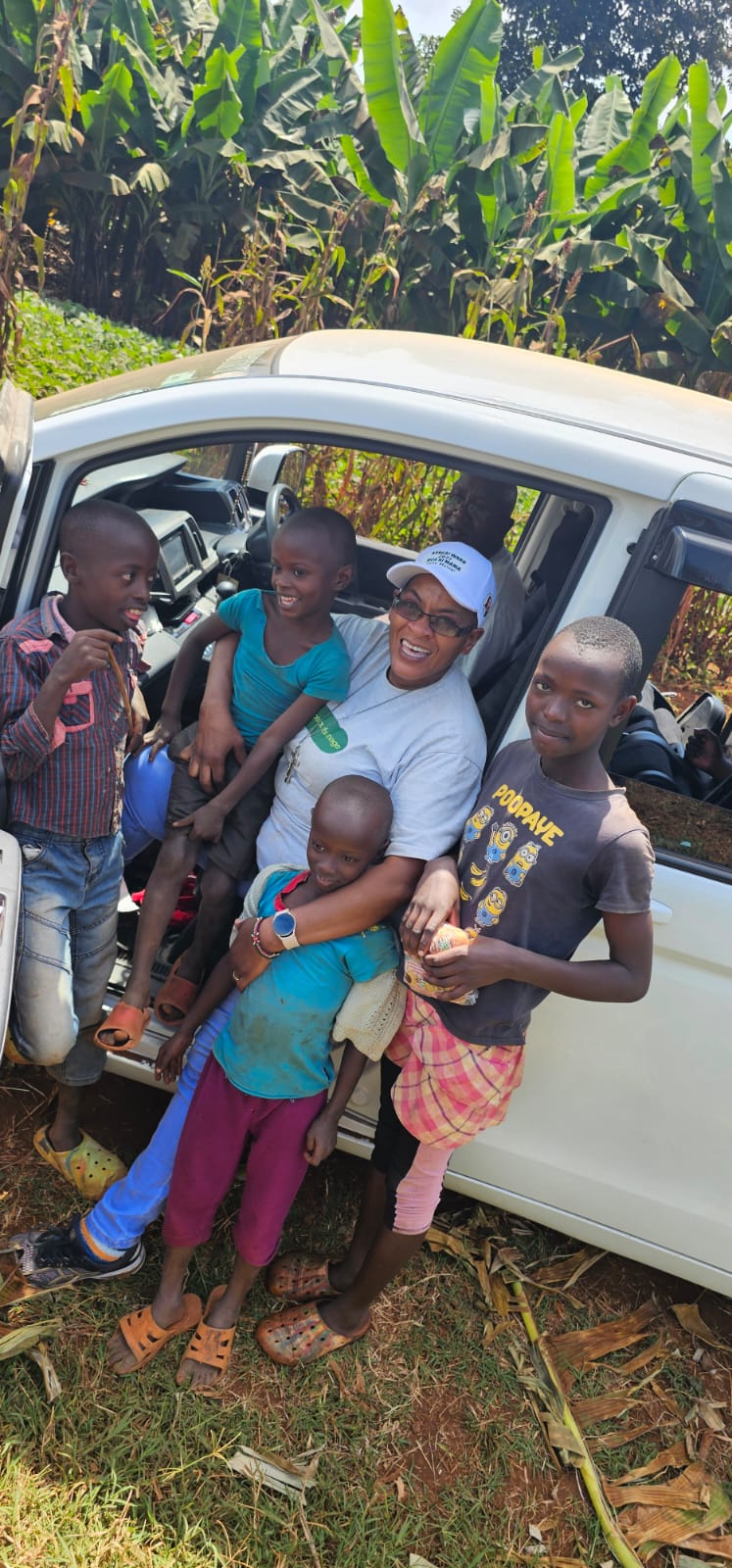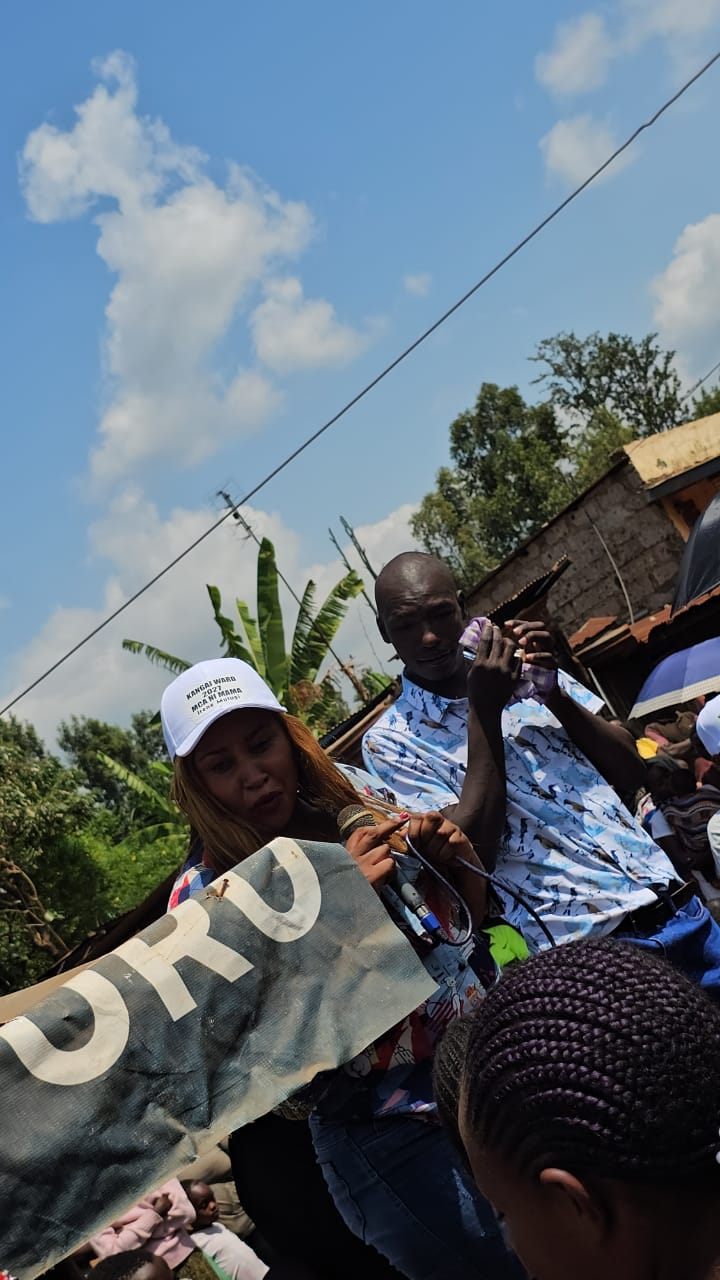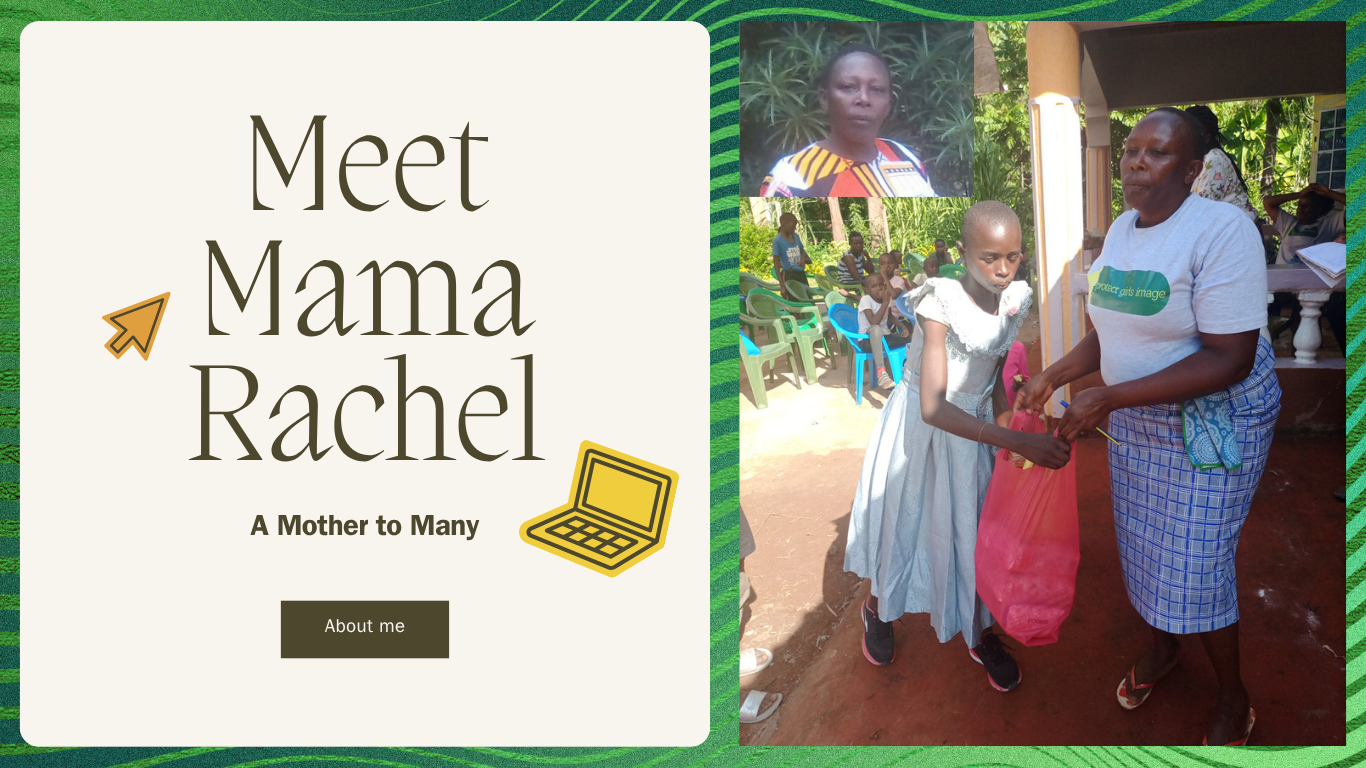Your Child’s Tears Are Speaking; Are You Listening?
Understanding PTSD in Children and Why Your Response Matters
You may not see the bruise, blood or broken bone. But the signs will be the there because emotional trauma is real. It’s invisible; usually felt and it does change everything.
At Protect a Girl’s Image Organization, emotional trauma is one of the many wounds we help children heal from alongside physical abuse, neglect, abandonment, and exploitation. But emotional trauma is often overlooked, especially in African homes, because it doesn’t scream. It whispers. And if you don’t listen closely, you’ll miss it.
And it starts with us as the parents, guardians, or caregivers.
What If You’re Hurting Your Child Without Realizing It?
You may think shouting is harmless and that calling them “lazy” or “stubborn” is just a way of “correcting” them, but do words cut. And they cut deep.
Tone wounds and repeated yelling over small mistakes isn’t discipline, it is emotional damage.
Let’s be honest: how often have you yelled at your child for something that didn’t really deserve it? A spilled drink, a forgotten item, a small slip-up.
How often have you stopped to ask: Why is my child acting this way?
Not all misbehavior is defiance. Sometimes, it’s a cry for attention, connection or even a cry for help.
Brian’s Story Could Be Your Child’s
Let’s take the example of Brian. Let’s imagine Brian is seven years old. One day he breaks a glass and instead of being corrected with understanding, he is screamed at and it starts to become a pattern. At home he is “hard-headed” and overtime at school, he starts to be labeled “difficult.”
Brian’s father had just walked out and Brian’s world had started to feel unstable. His tears came out in tantrums because that’s the only language he has for grief. And no one is seeing the pain behind the behavior, so no one can understand and no one is helping Brian deal.
No one stops neither pauses to ask nor understand.
But when someone does pay attention and starts to help Brian do the work, that is when Brian’s healing is beginning.
And this too can be considered as part of therapy. Sometimes therapy is lending a listening ear and showing them that it’s okay for them to trust you. That you are hear to help and protect them; help them work it out. But also sometimes we find we can’t do it alone and it is also very okay to ask for help. We don’t have to do it alone.
What PTSD in Children Looks Like (That You May Be Missing)
Post-Traumatic Stress Disorder (PTSD) in children doesn’t always look like it in adults. Sometimes, it looks like:
- Sudden silence or withdrawal
- Aggression and anger
- Drop in school performance
- Clinginess or fear of being alone
- “Disobedience” that masks anxiety, fear, or confusion
Among many others.
You may be seeing a child acting out, but what they really are… is wounded.
Here’s the Truth: Unhealed Children Become Hurting Adults
Ever heard of hurt people, hurt people?
And maybe you know that truth already. Maybe you are that hurting adult and maybe you still do carry the weight of words yelled at you years ago. Maybe you still flinch at loud voices or feel the need to “be perfect” just to be loved.
Trauma doesn’t age out. It follows you into adulthood if you don’t do the work. It follows you into relationships, parenting, decision-making; into many and different areas of your life including how you even relate with your coworkers.
It stays in your nervous system, even when you’ve forgotten the event.
It wasn’t your fault; what happened to you as a child was not your fault but what you do have a responsibility to do the work and heal. I know it’s unfair but this is how it is.
So let this sink in: how you treat your child today really matters and it is shaping the kind of adult they become in future.
What You Can Do, Starting Now
You don’t need to be a perfect parent, you just need to be a present, kind, and self-aware one.
Let’s break it down:
🌱 1. Start With Yourself
Sometimes, your child isn’t the problem—You are. Your own pain, stress, or upbringing might be bleeding into how you raise them.
It’s time to start checking your tone, your language, your energy. Healing starts with recognizing your patterns.
💬 2. Watch Your Words
Words matter; your child is building their self-image based on what you say.
How about: “Talk to me, I’m listening.” instead of “You never listen!”
“Mistakes are okay, let’s fix it together.” instead of “You always mess things up!”
Your words become their inner voice. Speak life.
🤝 3. Be Emotionally Present
Put down your phone and look them in the eyes. Let them talk without you rushing to correct. Sometimes they don’t need advice. They just need to know you care enough to listen.
🤗 4. Affection is Not Weakness
African parents, let’s say it louder: Your child needs affection.
A hug. A pat on the back. A smile.
These are not luxuries. They are tools of healing.
🧘🏾♀ 5. Let Them Process
And sometimes all they need is just time to cool down. Not every outburst needs instant punishment or attention. Give them the space to process: to cry, to think, to do whatever they need to (as long as it isn’t harmful)—but remind them you’re here when they’re ready.
You Never Stop Being a Parent
Even when your child is 18, 25, 35, 50 (if you’re fortunate enough)… they are still your child and you will always be their first love.
Don’t ever think kindness expires once they’re older. They will still look for your warmth and they will still carry your words—good or bad. So speak gently and correct with compassion, because even adults are still someone’s children and we do deserve some TLC (Tender Loving Care).
This Is Your Invitation to Grow
Your child is not just here to be disciplined, they are here to be understood and loved even when they mess up.
They should be able to feel safe in your presence and not scared of your reaction.
And you—yes you—can be part of the solution:
Reflect.
Relearn.
Reconnect.
At PGIO, we’re here to help families like yours heal. Not just fix surface-level behaviors, but go deeper; we know the signs and we see the silent pain. And we believe in your capacity to change, to grow, and to break generational patterns.
A Daily Dose of Hope
Need motivation or encouragement for the journey?
Follow our partners at @BoundlessHopeRehab for daily mental health inspiration and parenting tools.
Healing is possible; Growth is possible and you don’t have to do it alone.
🧡 Protect a Girl’s Image Organization (PGIO)
Supporting children through emotional trauma and beyond.
Because every child deserves to be seen, heard and healed.
If this message resonates with you, share it. Start the conversation. And be the parent who listens to the tears, and answers with love.


